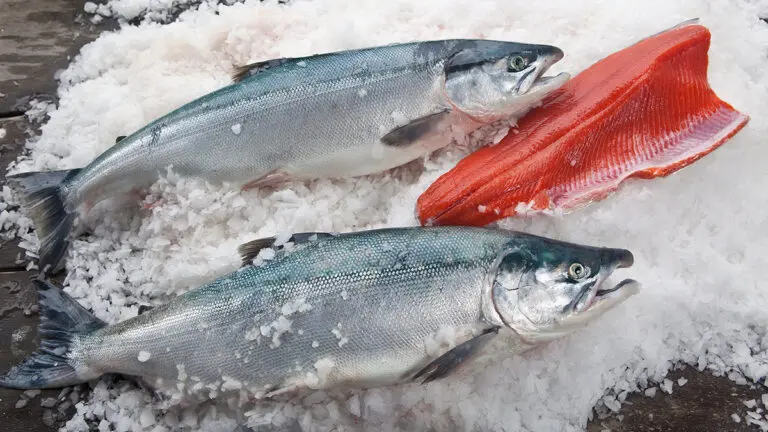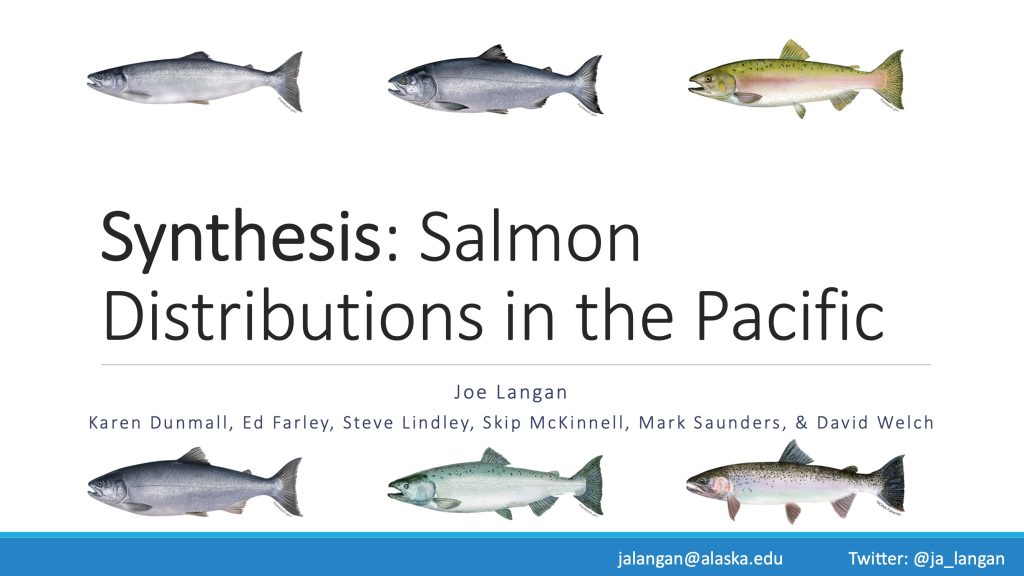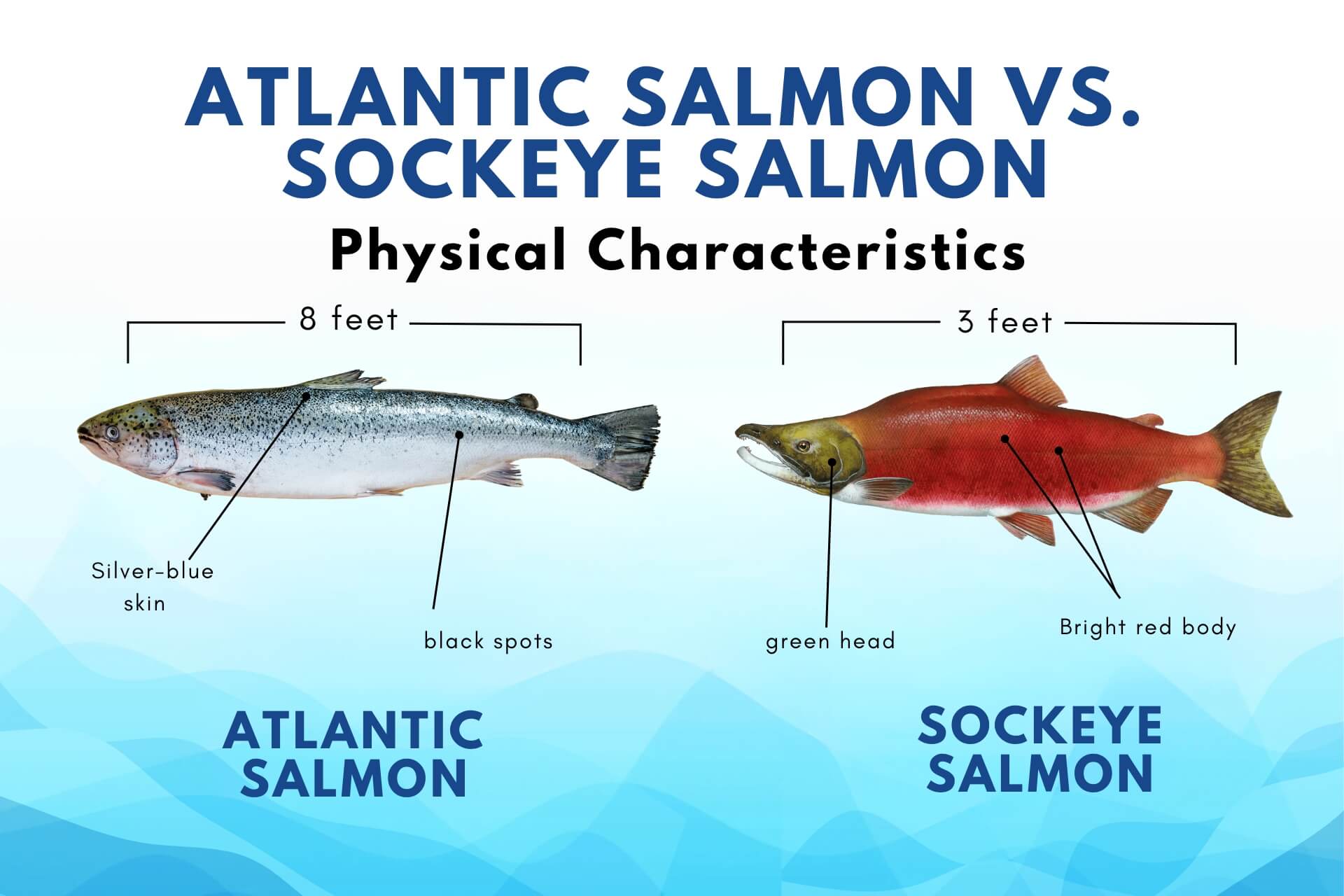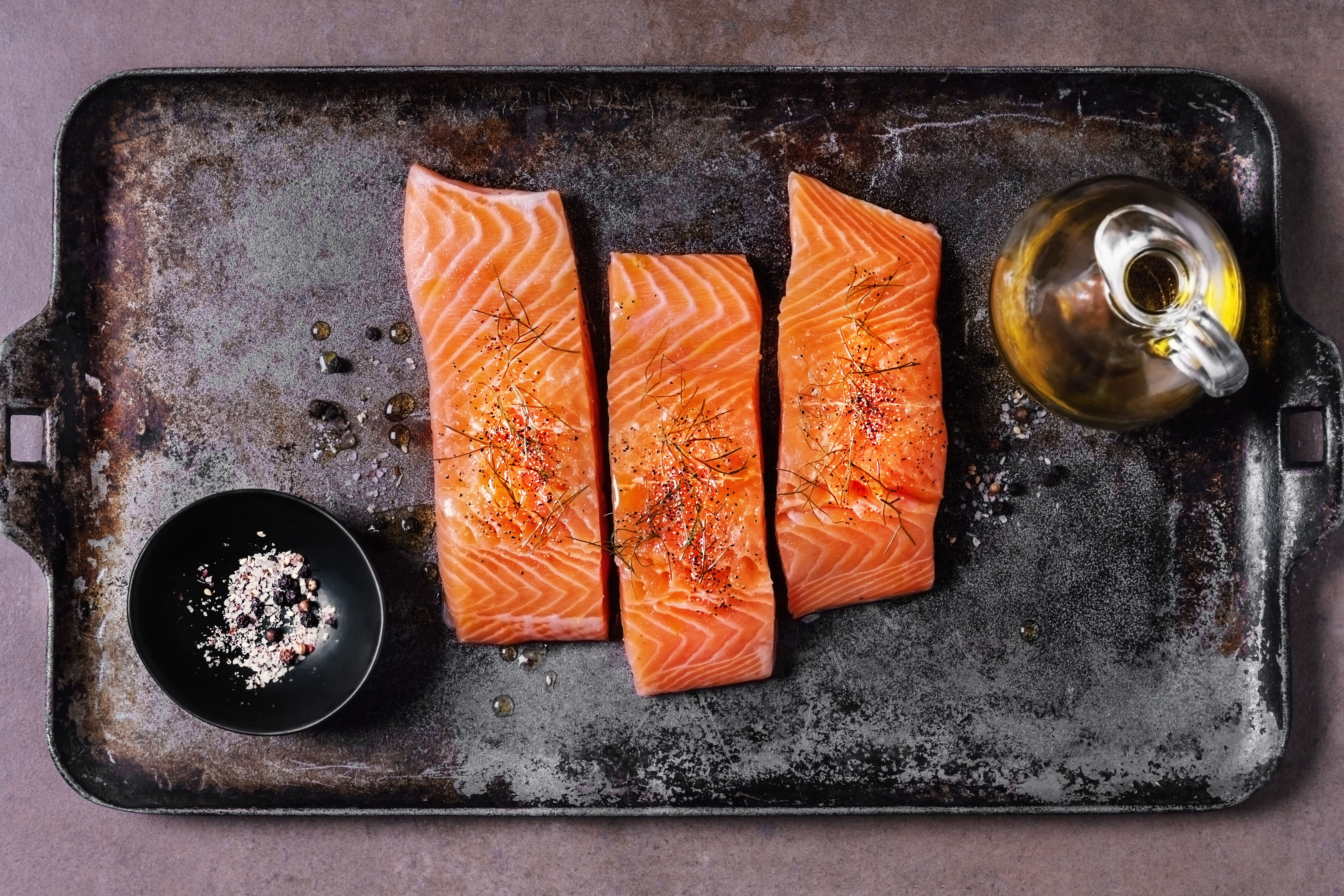Introduction

Introduction:
When it comes to purchasing salmon, you may have noticed two main types available: Atlantic Salmon and Pacific Salmon. While both offer omega-3s, protein, and nutrients, there are some key differences in terms of taste, texture, and color. Atlantic Salmon tends to have a milder flavor, softer texture, and lighter pink color compared to wild Pacific Salmon. On the other hand, Pacific Salmon generally has a richer taste and lower fat content, making it a popular choice for high-end sushi. In this article, we will explore the differences between Atlantic Salmon and Pacific Salmon and provide insights into their culinary uses, health benefits, and environmental aspects.
A brief overview of Atlantic Salmon and Pacific Salmon

Atlantic Salmon and Pacific Salmon are two main types of salmon available in the market. Atlantic Salmon is known for its milder flavor, softer texture, and lighter pink color compared to wild Pacific Salmon. Pacific Salmon, on the other hand, has a richer taste and lower fat content. It is important to understand the differences between the two in terms of taste, texture, and color, as well as their culinary uses, health benefits, and environmental aspects. Let's dive deeper into the comparison between Atlantic Salmon and Pacific Salmon.
Atlantic Salmon

Atlantic Salmon is known for its mild flavor, soft texture, and lighter pink color compared to its Pacific counterpart. When cooking Atlantic Salmon, it is important to handle it gently to maintain its delicate texture. Grilling or broiling are popular cooking methods that enhance its natural flavors. This versatile fish can be enjoyed in various dishes such as salads, sandwiches, or simply pan-seared with a squeeze of lemon. Its nutritional profile is also noteworthy, as it is a good source of omega-3 fatty acids and high-quality protein. Overall, Atlantic Salmon is a delicious and nutritious choice for seafood lovers.
Atlantic Salmon flavor profile and texture

Atlantic Salmon is known for its mild flavor, soft texture, and lighter pink color compared to its Pacific counterpart. When cooking Atlantic Salmon, it is important to handle it gently to maintain its delicate texture. Grilling or broiling are popular cooking methods that enhance its natural flavors. This versatile fish can be enjoyed in various dishes such as salads, sandwiches, or simply pan-seared with a squeeze of lemon. Its nutritional profile is also noteworthy, as it is a good source of omega-3 fatty acids and high-quality protein. Overall, Atlantic Salmon is a delicious and nutritious choice for seafood lovers.
Cooking methods for Atlantic Salmon

When it comes to cooking Atlantic Salmon, there are a variety of methods you can try. Grilling and broiling are popular options that enhance its natural flavors. Pan-searing is another great choice, giving it a delicious crispy exterior while maintaining its tender texture. You can also bake or roast Atlantic Salmon for a more gentle cooking method. Whichever method you choose, be sure to handle the salmon gently to preserve its delicate texture. Experiment with different seasonings and sauces to add your own personal touch to this versatile fish. Enjoy!
Pacific Salmon

Pacific Salmon, also known as Oncorhynchus salmon, is a popular type of salmon found in the Pacific Ocean. It includes different species such as Chinook, Sockeye, Coho, Pink, and Chum salmon. These salmon varieties have distinct characteristics in terms of flavor, texture, and color. Pacific Salmon is known for its rich, robust flavor and firm, meaty texture. It is commonly used in a variety of culinary dishes, including grilling, baking, and smoking. When choosing Pacific Salmon, look for bright, vibrant colors and firm, moist flesh to ensure the best quality and taste.
Different types of Pacific Salmon and their characteristics

Pacific Salmon encompasses various species such as Chinook, Sockeye, Coho, Pink, and Chum salmon, each with its own distinct characteristics.
- Chinook salmon, also known as King salmon, is the largest and has a rich, buttery flavor.
- Sockeye salmon has a deep red flesh and a robust, full-bodied flavor.
- Coho salmon has a milder flavor and a firm texture.
- Pink salmon, also known as humpback salmon, has a delicate flavor and a softer texture.
- Chum salmon, sometimes called dog salmon, has a mild taste and a firm, flaky texture.
Nutritional benefits of Pacific Salmon

Pacific Salmon not only offers a rich and flavorful taste but also boasts impressive nutritional benefits. It is an excellent source of high-quality protein, omega-3 fatty acids, and essential nutrients like vitamin D and selenium. These nutrients are known to support heart health, brain function, and overall well-being. Furthermore, the omega-3 fatty acids found in Pacific Salmon have anti-inflammatory properties and may help reduce the risk of chronic diseases such as heart disease and arthritis. Adding Pacific Salmon to your diet can be a delicious way to fuel your body with essential nutrients.
Culinary Uses

Culinary Uses:
Atlantic Salmon is versatile and can be used in a variety of dishes, such as grilled salmon fillets, salmon burgers, or even smoked salmon appetizers. Its mild flavor pairs well with a variety of ingredients and can be seasoned with herbs, spices, or marinades to enhance its taste. Pacific Salmon is also widely used in culinary dishes and is often enjoyed in sushi, sashimi, or as a main course with flavorful glazes or sauces. Both types of salmon can be baked, broiled, grilled, or pan-seared to perfection, offering a delicious and nutritious addition to any meal.
Popular dishes featuring Atlantic Salmon

Some popular dishes featuring Atlantic Salmon include grilled salmon fillets, salmon burgers, and smoked salmon appetizers. Atlantic Salmon's mild flavor pairs well with a variety of ingredients and can be seasoned with herbs, spices, or marinades to enhance its taste. It can be cooked using various methods such as baking, broiling, grilling, or pan-searing. These dishes offer a delicious and nutritious addition to any meal.
Famous recipes using Pacific Salmon

If you're looking for famous recipes using Pacific Salmon, try grilling salmon steaks with a soy glaze for a savory and flavorful dish. Another popular option is to bake Pacific Salmon with a lemon and dill seasoning, creating a refreshing and aromatic meal. You can also make delicious salmon patties with fresh herbs and breadcrumbs, served with a tangy tartar sauce. Explore these recipes to enjoy the rich and distinctive taste of Pacific Salmon in a variety of culinary creations.
Health and Environmental Aspects

Health and Environmental Aspects
When it comes to the health benefits of consuming Atlantic Salmon, it is worth noting that it provides omega-3s, protein, and essential nutrients. However, compared to wild Pacific Salmon, Atlantic Salmon has a milder taste, softer texture, and lighter pink color. On the other hand, sustainability concerns are often associated with Pacific Salmon due to commercial fishing practices and the impact on wild populations. It is important to choose sustainably sourced salmon to minimize the environmental impact and support the long-term health of fish populations and ecosystems.
Health benefits of consuming Atlantic Salmon

Atlantic Salmon offers numerous health benefits due to its high content of omega-3 fatty acids, protein, and essential nutrients. These nutrients contribute to heart health, brain function, and overall wellbeing. Incorporating Atlantic Salmon into your diet can help reduce the risk of cardiovascular diseases, improve cognitive function, and support a healthy immune system. Additionally, the omega-3 fatty acids found in Atlantic Salmon have anti-inflammatory properties, which may help alleviate symptoms of arthritis and other inflammatory conditions. Enjoying Atlantic Salmon regularly can be a delicious and nutritious way to support your overall health.
Sustainability concerns related to Pacific Salmon

There are several sustainability concerns related to Pacific Salmon. Intensive farming practices can have negative impacts on the environment, including water pollution and the spread of diseases to wild salmon populations. Overfishing also poses a threat to the sustainability of Pacific Salmon stocks. It is important to choose sustainably sourced salmon and support sustainable fishing practices to help protect the long-term viability of Pacific Salmon populations and maintain ecological balance in our oceans.
Conclusion

When it comes to choosing between Atlantic Salmon and Pacific Salmon, the decision ultimately comes down to personal preference. Atlantic Salmon has a milder taste, softer texture, and lighter pink color, while Pacific Salmon has a more robust flavor and firmer texture. Consider the culinary uses and health benefits of each type of salmon, and don't forget to prioritize sustainability by choosing sustainably sourced salmon. Whether you go for the delicate Atlantic Salmon or the bold flavors of Pacific Salmon, both options offer delicious and nutritious seafood choices.
Taste comparison between Atlantic Salmon and Pacific Salmon

Atlantic Salmon and Pacific Salmon have distinct taste profiles that cater to different preferences. Atlantic Salmon boasts a milder flavor with hints of sweetness, making it ideal for those who prefer a delicate taste. On the other hand, Pacific Salmon is bolder and oilier, offering a stronger, more pronounced flavor. Its sturdy texture holds up well to various cooking methods. When considering which salmon to choose, it's crucial to consider your personal taste preferences and the specific recipe or dish you plan to prepare. Experimenting with both types can help you discover your preferred flavor profile.
Tips for choosing the best salmon for your preferences

When it comes to choosing the best salmon for your preferences, there are a few tips to keep in mind.
- Consider the flavor: If you prefer a milder taste, go for Atlantic Salmon. If you prefer a bolder, stronger flavor, opt for Pacific Salmon.
- Consider the texture: Atlantic Salmon has a softer texture and larger flakes, while Pacific Salmon has a firmer, flakier texture.
- Cooking methods: Atlantic Salmon is great for grilling, baking, and poaching, while Pacific Salmon holds up well for grilling, smoking, and searing.
- Sustainability: Look for sustainably sourced salmon to support responsible fishing practices.
- Experiment: Try both types of salmon to discover your personal preference.
DK FAQ MARK
FAQ about Coastal Cuisine Showdown: Atlantic Salmon vs Pacific
Q: What is the difference between Atlantic Salmon and Pacific Salmon?
A: The main difference lies in their taste and texture. Atlantic Salmon is typically milder and fattier, while Pacific Salmon is known for being firmer and having a richer flavor.
Q: Which salmon is more sustainable to consume?
A: Pacific Salmon is generally considered more sustainable as their populations are better managed and have less impact on the environment compared to Atlantic Salmon.
Q: How should Atlantic and Pacific Salmon be cooked differently?
A: Atlantic Salmon is more prone to overcooking due to its higher fat content, so it's best to cook it at lower temperatures. Pacific Salmon can be cooked at higher temperatures and is better suited for grilling or broiling.
Q: Are there any specific health benefits to choosing Atlantic or Pacific Salmon?
A: Both types of salmon are rich in omega-3 fatty acids and provide numerous health benefits. However, Atlantic Salmon tends to have higher levels of fat, which can be beneficial for those looking to increase their omega-3 intake.
Q: Which type of salmon is more commonly found in restaurants?
A: Atlantic Salmon is more commonly found in restaurants due to its availability and popularity among consumers. Pacific Salmon is also used but may be more regionally specific depending on the location of the restaurant.
Q: Can Atlantic and Pacific Salmon be used interchangeably in recipes?
A: While both types of salmon can be used in a variety of recipes, their differing flavors and textures may affect the overall taste of the dish. It's best to use them as recommended in the recipe for the optimal culinary experience.

The Finer Diner has a rich history deeply rooted in the Mt. Oliver and Hilltop community. Our journey began with a simple yet ambitious vision – to create a welcoming space where friends and families could come together to enjoy delicious, comforting meals in a classic diner-style setting. Since our establishment, we have been dedicated to serving food, creating lasting memories, and fostering a sense of belonging within our community. Our commitment to quality, authenticity, and exceptional service has been the cornerstone of our success.